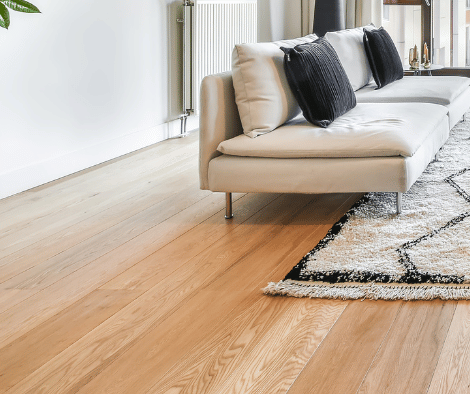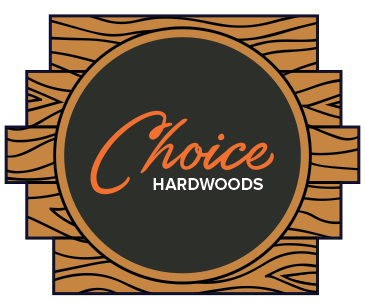Top Flooring Brands 2025

What Flooring Brand Is The Best?
1. LL Flooring (formerly Lumber Liquidators)
- Overview: LL Flooring is renowned for offering a wide variety of flooring options, including high-quality LVP products.
- Popular Styles:
- ReNature by CoreLuxe: Features realistic wood grains and knots, with styles like Yorkshire Cottage Oak and Augsburg Oak gaining popularity.
- Unique Features: Known for superb stain resistance and reliable water resistance, these planks are finished with a UV-cured process instead of a traditional wear layer.
- Price Range: Approximately $4–$6 per square foot, depending on the specific style and features.
2. LifeProof
- Overview: Exclusively available at Home Depot, LifeProof offers LVP flooring that combines affordability with durability.
- Popular Styles: Various wood-look designs with a 22-mil wear layer, providing excellent scratch resistance.
- Unique Features: Features a waterproof construction, making it suitable for moisture-prone areas like bathrooms and kitchens.
- Price Range: Around $2–$4 per square foot, offering exceptional value for budget-conscious homeowners.
3. Mohawk
- Overview: Mohawk is a well-established brand recognized for its durable and stylish flooring options.
- Popular Styles: The SolidTech Plus line offers a range of designs, including naturals, browns, and grays, with extra-wide 9-inch planks.
- Unique Features: SolidTech Plus is fully waterproof, stain-resistant, and features a 20-mil wear layer for enhanced durability.
- Price Range: Approximately $6–$8 per square foot, reflecting its premium quality and features.
4. COREtec
- Overview: COREtec revolutionized the industry by introducing 100% waterproof luxury vinyl flooring.
- Popular Styles: A variety of wood and stone looks, with a focus on realistic textures and colors.
- Unique Features: Known for its waterproof construction, COREtec offers both glue-down and floating options, catering to different installation preferences.
- Price Range: Generally ranges from $5–$7 per square foot, depending on the collection and features.
5. Mannington Adura
- Overview: Mannington’s Adura line is celebrated for its durability and aesthetic appeal.
- Popular Styles: Offers a range of wood and stone visuals, with options suitable for various design preferences.
- Unique Features: Adura floors are known for their thick planks, enhancing durability and providing a more authentic feel underfoot.
- Price Range: Typically around $4–$6 per square foot, offering a balance between quality and affordability.
6. MSI Everlife
- Overview: MSI’s Everlife collection offers a range of LVP options that combine style and resilience.
- Popular Styles: Features trending wood looks with various colors and textures, catering to diverse design preferences.
- Unique Features: Known for its waterproof performance and realistic wood visuals, making it suitable for any room in the home.
- Price Range: Approximately $3–$5 per square foot, providing a range of options to suit different budgets.
7. Shaw Paragon Plus
- Overview: Shaw’s Paragon Plus series is designed for high durability and style.
- Popular Styles: Offers a variety of wood-look designs with a focus on realistic textures and colors.
- Unique Features: Paragon Plus features a rigid core construction, enhancing durability and providing a more authentic feel underfoot.
- Price Range: Generally around $4–$6 per square foot, offering a balance between quality and affordability.
8. TritonCore Pro
- Overview: TritonCore Pro offers LVP flooring that combines durability with stylish designs.
- Popular Styles: Features a range of wood finishes that mimic the look of hardwood, providing a rustic, cozy feel.
- Unique Features: Known for thicker planks that withstand wear and tear, making them suitable for high-traffic areas.
- Price Range: Approximately $3–$5 per square foot, offering a balance between quality and affordability.
9. Bruce Vinyl
- Overview: Bruce is a well-known brand offering a variety of vinyl flooring options.
- Popular Styles: Provides a range of wood-look designs with various colors and textures.
- Unique Features: Bruce vinyl flooring is known for its durability and ease of maintenance, making it suitable for various applications.
- Price Range: Typically around $4–$6 per square foot, depending on the specific style and features.
10. Parkay Floors
- Overview: Parkay Floors offers a range of vinyl flooring options that combine style and functionality.
- Popular Styles: Features a variety of wood-look designs with different finishes and colors.

How To Choose The Best Flooring: Key Factors Price And Design
When it comes to choosing the perfect flooring for your home, there are many factors to consider beyond just price and design. While those are important elements, the right choice should align with your lifestyle, home environment, and long-term needs. With the rise in popularity of Luxury Vinyl Plank (LVP) and Engineered Hardwood flooring, it can be overwhelming to decide which one is right for you. The key is to evaluate your priorities and choose a flooring option that checks all the boxes in terms of durability, maintenance, comfort, and sustainability.
Here’s a step-by-step guide to help you make an informed decision, using some of the most popular brands and styles available in 2025.
1. Durability and Resilience
One of the most important factors to consider when choosing between LVP and engineered hardwood is durability. Both options offer impressive longevity, but they cater to different needs.
LVP: If your household includes children, pets, or heavy foot traffic, LVP is an excellent option. Brands like LifeProof and Mohawk’s SolidTech Plus offer highly durable options that are scratch-resistant and waterproof. These qualities make LVP an ideal choice for areas prone to spills and moisture, such as kitchens, bathrooms, and basements. With a thicker wear layer (typically 12 mils or more), high-quality LVP can stand up to daily wear without showing significant signs of damage.
Engineered Hardwood: While engineered hardwood like Mannington’s Adura or Shaw’s Paragon Plusprovides a stunning, natural wood look, it is more susceptible to scratching and denting compared to LVP. If you have an active household or plan to install the flooring in high-traffic areas, consider a product with a thicker wear layer. Engineered hardwood is less resilient in moisture-heavy environments and may require more maintenance in such spaces.
For homes with kids or pets, LVP typically provides better long-term durability because of its ability to resist both scratches and moisture.
2. Water Resistance and Maintenance Needs
Different flooring options have varying levels of water resistance and maintenance needs, so it’s essential to think about how much care your floors will require.
LVP: As mentioned, most LVP products like COREtec and LifeProof are designed to be waterproof, making them an excellent choice for moisture-prone areas. If you’re concerned about water spills or live in a humid climate, LVP should be at the top of your list. Additionally, LVP is low-maintenance: regular sweeping and occasional mopping with a pH-neutral cleaner will keep it looking fresh. Cleaning products like Bona Hard-Surface Cleaner are gentle and safe for LVP flooring.
Engineered Hardwood: While engineered hardwood can handle moisture better than solid wood, it is not fully waterproof. Prolonged exposure to moisture can cause the boards to warp or swell. It requires more maintenancethan LVP, especially in high-moisture areas. Sweeping and damp mopping are generally fine, but it’s important to avoid excessive water, and you may want to consider using specialized cleaners like Mannington’s Adura Cleaner to protect the finish.
If you want a floor that’s truly waterproof with minimal effort to clean, LVP flooring is the better choice. However, if you love the authentic look and feel of natural wood and are willing to perform some extra care, engineered hardwood might suit you.
3. Comfort and Feel Underfoot
The comfort of your floor plays a significant role in how you experience your living space. The feel of the floor beneath your feet is influenced by its texture, thickness, and thermal properties.
LVP: Modern LVP options, such as those from Mohawk and COREtec, often have a soft backing that provides a more comfortable feel underfoot. The thicker rigid core options add even more comfort, mimicking the feel of real wood or stone. Additionally, because LVP is a synthetic material, it won’t shrink or expand with humidity, maintaining its comfort level year-round.
Engineered Hardwood: Natural wood, like that in Shaw Paragon Plus or Bruce Vinyl, provides a more authentic, warm, and natural feel underfoot. Engineered hardwood is denser and often warmer than LVP, providing a more luxurious touch in spaces like living rooms and bedrooms. However, it may be affected by fluctuations in temperature and humidity, which can lead to expansion or contraction over time.
If you value comfort and a softer feel, LVP with a rigid core might be a better option. However, if you prefer the authentic warmth and natural feel of real wood, engineered hardwood will give your home a cozy and premium aesthetic.
4. Aesthetic Appeal and Style Versatility
The style and design of your floors contribute significantly to the overall atmosphere of your home. Both LVP and engineered hardwood offer a wide range of options, but their visual appeal differs in subtle ways.
LVP: Available in a variety of wood looks (from oak to walnut) and even stone or tile designs, LVP is versatile and can suit almost any design scheme. Brands like LifeProof and MSI Everlife offer trending options in light and dark hues, with realistic textures that mimic natural materials. LVP can be installed in areas that would typically be off-limits for real wood, such as basements and bathrooms, without worrying about the impact of moisture or humidity.
Engineered Hardwood: If you want the luxury and realistic beauty of natural wood, engineered hardwood is the way to go. Options like Mannington’s Adura or Shaw Paragon Plus offer beautiful designs with classic or contemporary wood finishes, providing an elegant and timeless appeal. Engineered hardwood brings a sense of warmth and sophistication that LVP may not fully replicate.
Both materials offer an array of colors and textures, but engineered hardwood tends to edge out in the luxury department if you prioritize natural aesthetics.
5. Installation Process and Flexibility
When choosing flooring, consider the installation process and whether you’ll be doing it yourself or hiring a professional.
LVP: Many LVP products are designed for easy installation with click-lock systems, making it ideal for DIY enthusiasts. You can install it on virtually any subfloor, including concrete, plywood, or even existing floors. LifeProof and COREtec offer user-friendly installation options that don’t require glue or nails.
Engineered Hardwood: Engineered hardwood can also feature click-lock installation, but it may require more precision and expertise than LVP. Additionally, it can be more difficult to install over certain subfloors, especially if you’re working with radiant heating systems or uneven surfaces.
For homeowners looking for a simpler, quicker installation process, LVP provides the most flexibility. However, if you’re willing to invest in a more complex installation process for the beauty and warmth of wood, engineered hardwood could be the better fit.
Conclusion: Finding the Best Flooring for Your Home
Ultimately, your choice between LVP and engineered hardwood will depend on your lifestyle and priorities. LVP excels in durability, ease of maintenance, and water resistance, making it the ideal choice for active households, moisture-prone areas, and budget-conscious consumers. Engineered hardwood shines with its authenticity, warmth, and beauty, making it perfect for homeowners who seek a natural, luxurious look and feel.
By considering durability, water resistance, maintenance, comfort, aesthetics, and installation, you’ll be well on your way to choosing the right flooring option for your home. Whether you opt for the convenience of LVP or the timeless elegance of engineered hardwood, the best flooring for your space is one that fits your lifestyle and meets both practical and aesthetic needs.

